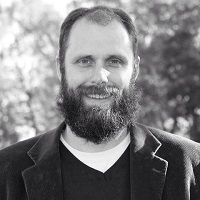Difficult times are not excuses to hide out on a cushion; they are invitations to bring our cushion into our daily life.
I arrived at the doorstep of spirituality in search of meaning or content. So it goes without saying that discontentment was what delivered me to that doorstep. Eventually I realized that all of my attempts to fill the void with external content were futile, so I shifted the focus of my search within. I suspect that most people embark upon the spiritual path for similar reasons. It seems that we all arrive at this point where we intuitively recognize that there is a great deal more potential present than we are accessing. So we set out in search of a way to actualize that potential. This search is called spirituality.
There are a number of ways that this search can be taken hostage by the same egocentric programs that produced our discontentment in the first place, and Chogyam Trungpa Rinpoche aptly referred to this hostage situation as ‘spiritual materialism.’ One particular example of spiritual materialism that I wish to draw attention to is contemplative timidity. Thomas Merton once told an assembly of monks at Gethsemane that they were introverts not monks! This is what I mean by contemplative timidity—the tendency to reduce spirituality down to little more than hiding out on a cushion.
Don’t get me wrong, meditation practice is absolutely essential, but true meditation is alive. It doesn’t begin or end on a cushion. It may be that we are introduced to the living quality of meditation while on a cushion, but we must be willing to allow such insights to breathe, to stretch their legs, so to speak.
Formal practice, especially within the context of a retreat, has a remarkable capacity to shatter the foundation of confusion upon which all of our suffering is constructed. On the other hand, we can’t forget that meditation is like a bird—it must have two wings in order to fly. So if we wish to see our practice take flight we must be willing to put insight into action.
Insight destroys the causes that give rise to our suffering, but the residue or the pattern set forth by these causes still remains. These habitual tendencies are like the wake of the ego. If we wish to work with these patterns, with the conditioned impulses established by the ego, we have to allow meditation to become active. We may reach a place where our understanding is up in the clouds, but if we cannot bring this insight to bear in our relationships then in the clouds is where it will remain—having little to no effect here on earth. Meditation practice or inquiry unravels the confusion that gives birth to our dissatisfaction, and meditation in action un-does all the conditioned responses established under the veil of confusion, enabling us to discover true freedom.
Meditation has to touch the earth. This is the difference between intellectual knowledge and wisdom. Knowledge has no roots. That is not to say that it is of no value, but it is to say that its value is of an embryonic nature. Knowledge is a seed ready to be planted. When planted and nourished by inquiry, mindfulness, and action this seed takes root, and these roots are direct experience. This is where courage and dignity come in to play. In order to plant the seed we must have the courage to face life without the handrails installed by the ego. Instead of blindly succumbing to the impulse to interject our opinions or finish other’s sentences we must manifest the courage to open up, to listen. Likewise, instead of shrinking in the face of subconscious gossip from our internal charnel ground, we can see through these projections, and work with the situation as it is on the spot.
On the spiritual journey it will not do to see difficulties as obstacles to enlightenment, because they are the path to enlightenment. Generosity, discipline, patience, perseverance, and mindfulness are all essential means of transmutation. This means that giving space to others in traffic, experiences that challenge our preconceived ideas, obnoxious coworkers, turbulent relationships, and so called distractions are all essential means of awakening. Difficult times are not excuses to hide out on a cushion; they are invitations to bring our cushion into our daily life. We must bring a sacrifice to the altar, and that sacrifice has to be the habitual tendencies that ignore “the silence printed in the center of our being.”
True meditation is an invitation to step through hesitation & impulse into spontaneity. Spirituality invites us to move beyond the stale & expired atmosphere of the past, and the dry & lifeless realm of the future. Through meditation our true nature is discovered in the present moment. This moment is vibrant & energetic. Life is tantric, a continuum. Furthermore, we are no less than a dimension of this tantric moment—we are energy set in motion, momentum. Our practice takes flight when meditation is set in motion. The spiritual warrior is the practitioner who makes an altar of the earth upon which the ego is sacrificed.











Read 9 comments and reply